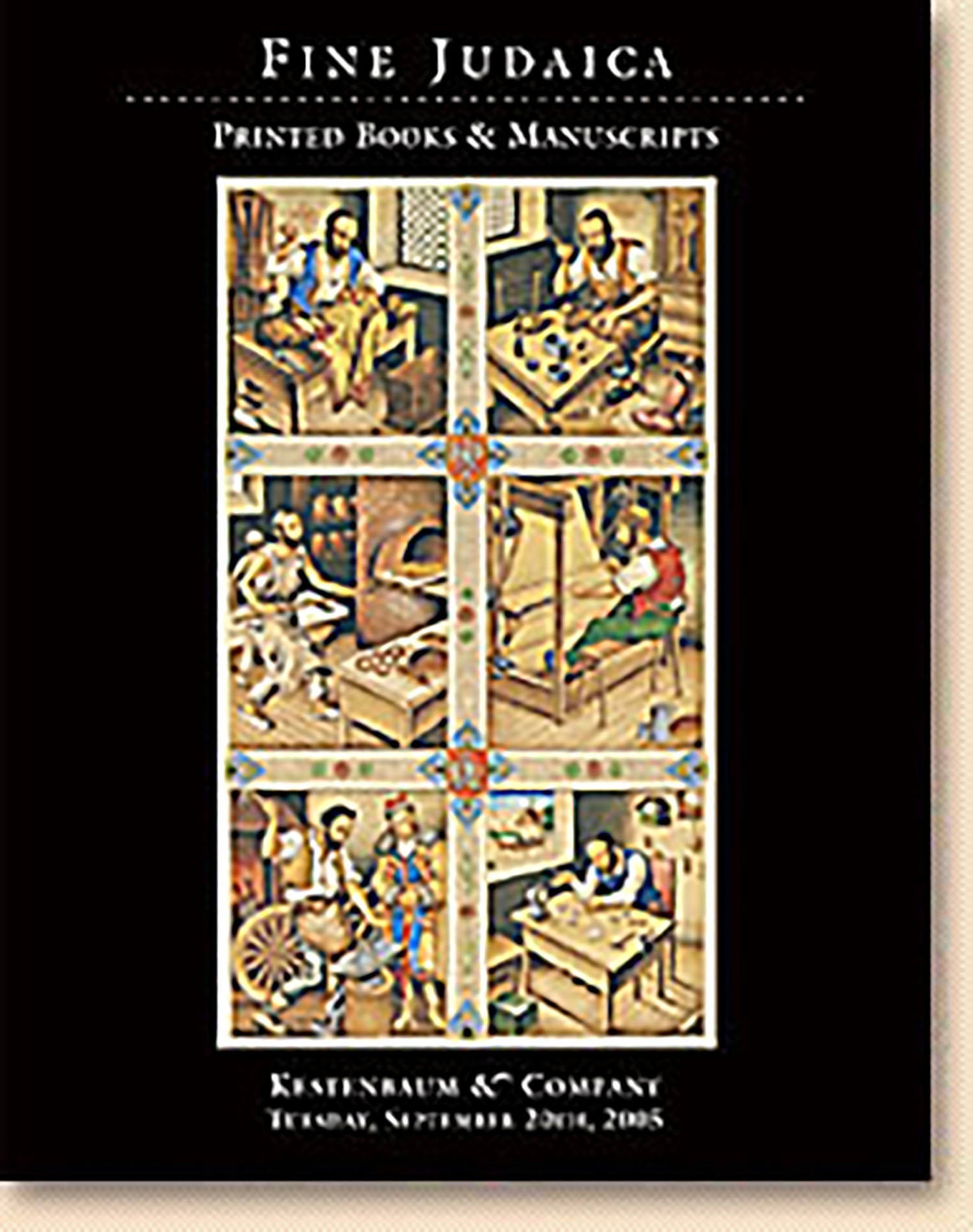(Noah, Mordecai Manuel). The War of Four Thousand Years … By P.S. White and H. R. Pleasants.

AUCTION 30 |
Tuesday, September 20th,
2005 at 1:00
Fine Judaica: Books and Manuscripts
Lot 28
(AMERICAN JUDAICA)
(Noah, Mordecai Manuel). The War of Four Thousand Years … By P.S. White and H. R. Pleasants.
Philadelphia: King & Baird 1846
Est: $1,000 - $1,500
PRICE REALIZED $2,000
This history of wine was published to further the aims of the Temperance Movement in America. In an appendix, the authors printed a letter by Mordecai Manuel Noah in which he described how American Jews prepared raisin wine for use on Passover. Noah concluded the recipe by noting that raisin wine was used because “we are strictly prohibited not only from eating leavened bread, but from drinking fermented liquors.” Noah’s comment regarding the prohibition of drinking alcohol on Passover is curious as an early American Jewish folk custom, as it is not based in halachic sources. Raisin wine is permitted by authorities, particularly under certain circumstance, but it is never considered a requirement. The transition of a permissible practice into an obligatory one in America may have been based on a corrupted Marrano understanding of Jewish law that was transmitted to America via the early Sephardic immigrants. (Nahum Slouschz reports that when visiting a Marrano community in Portugal he observed that they abstained from fermented wine and only drank raisin wine on Passover.) Noah was only one-quarter Sephardic and it was this heritage alone that he emphasized for many years (J. Sarna, Jacksonian Jew, pp. 2-3). He was certainly familiar with Marrano practices, which he learned from his great-grandmother, herself a former Marrano.
Noah’s pronouncement concerning this curious American Jewish folk practice was in response to a solicitation by temperance advocates who desired to know the Jewish (i.e. Biblical) view of consuming alcohol. With Noah’s letter they could proudly refute their opponents who argued that alcohol should be permitted because it was sanctioned by the Bible. Procuring Noah’s letter was a rare victory for temperance advocates, as all other leading Jewish figures subsequently questioned on the matter—including Isaac Mayer Wise (see lot 45)—came down firmly on the side of temperance opponents.
See J. Sarna, “Passover Raisin Wine, The American Temperance Movement, and Mordecai Noah,” HUCA 59 (1988), 269-88.
